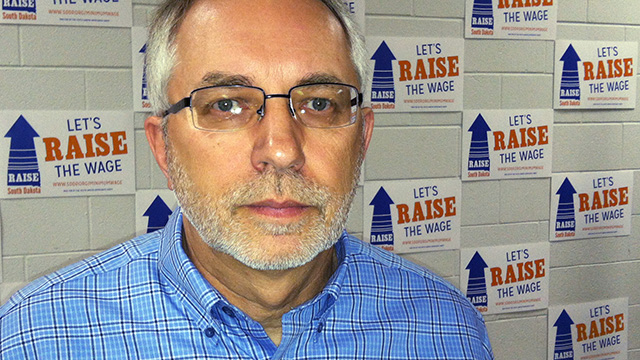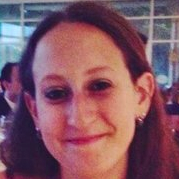This post first appeared at The American Prospect.

South Dakotans decided on Nov. 4, 2014 whether to raise the minimum wage in the state from $7.25 an hour to $8.50. Mark Anderson, president of the South Dakota AFL-CIO, led union members in gathering enough petitions to force a public vote on a minimum wage ballot measure. (Photo by Carson Walker/AP)
As devastating as Tuesday night’s election was for Democrats—Republicans took control of the Senate and won a number of key governor races — it was actually an encouraging night for the progressive economic agenda. In four red states — Alaska, Arkansas, Nebraska and South Dakota — minimum wage ballot initiatives all passed easily. In San Francisco, voters overwhelmingly passed a $15 minimum wage — with notably little opposition from the business community. And in Illinois, voters sent a clear message through a non-binding advisory initiative that they want lawmakers to raise the minimum wage and fast.
Increasing the federal minimum wage from $7.25 to $10.10 has been a major economic priority for President Barack Obama, part of his effort to curb the nation’s rising levels of inequality. (Under Obama’s plan, year-round, full-time minimum-wage workers would go from making $15,080 per year to $21,008.) Yet ever since April, when congressional Republicans mobilized to block wage-hike legislation, progress on the federal level has gone nowhere.
In light of this, it’s interesting to see a state like South Dakota — a state that hasn’t supported a Democrat for president in decades — vote to raise the wage by a 53 percent margin. The initiative will result in 62,000 South Dakotans taking home higher paychecks. In an email to The American Prospect, Zach Crago, executive director of the South Dakota Democratic Party, said, “It’s about rewarding hard work with an honest wage. That message resonates with South Dakotans. Republican candidates oppose it at their own peril.”
Minimum wage initiatives were so popular among voters leading up to the election that even Republican candidates like Alaska gubernatorial candidate Dan Sullivan had to say they’d vote for a minimum wage increase. Sullivan did just that, despite his having opposed it before the primary. Alaska’s minimum wage initiative passed with nearly 69 percent of the vote. Ed Flanagan, a leader of the Alaskans for a Fair Minimum Wage campaign, told The American Prospect that while the campaign faced no real organized opposition, the conservative state legislature could still try and repeal the law in two years — a move they pulled on Alaskan voters back in 2002. But given the high percentage of Alaskans who voted to raise the wage, Flanagan hopes state lawmakers “will think twice about messing with the will of the people.”
In Arkansas, Republican Representative Tom Cotton, during his campaign for Senate, stayed mum for months on a potential minimum wage increase until it became so popular with Arkansas voters that he finally felt compelled to come out in September to back it. Cotton won his Senate race last night, but so did the minimum wage — with 65 percent of Arkansas voters supporting the ballot initiative.
Exit polls for states where minimum wage initiatives weren’t on the ballot also showed high levels of support for future increases. In Wisconsin, although Scott Walker was re-elected, and has consistently opposed increasing the minimum wage, a solid majority of Wisconsin voters said they’d like to see it raised higher than $7.25.
Undoubtedly, it was a damning night for the Democratic Party, but the picture isn’t entirely bleak for progressives. Exit polls reveal that 63 percent of voters believe the US economic system favors the rich; this highlights a much larger national frustration for politicians to organize around. Arun Ivatury, a senior strategist with the National Employment Law Project Action Fund, told The American Prospect that, going forward, politicians who embrace economic populism “will run away from the pack in 2016, when the electorate looks much more like America. Those who don’t will be bypassed. It’s our job to make sure people know who is who.”


